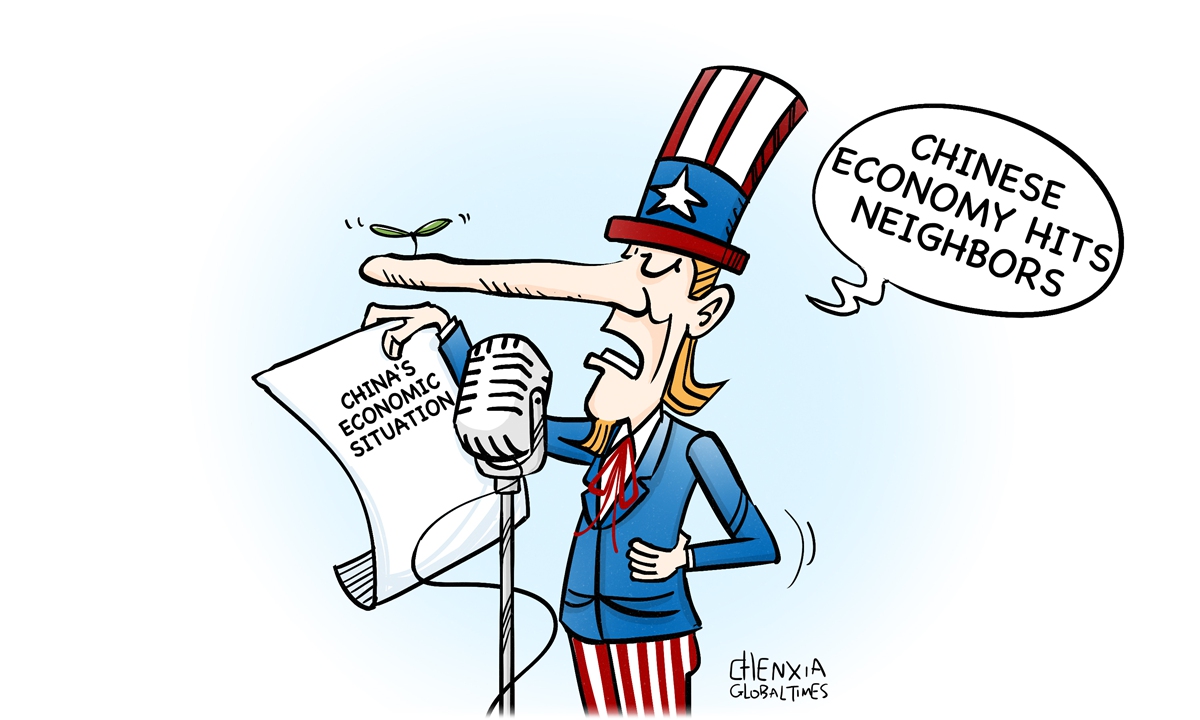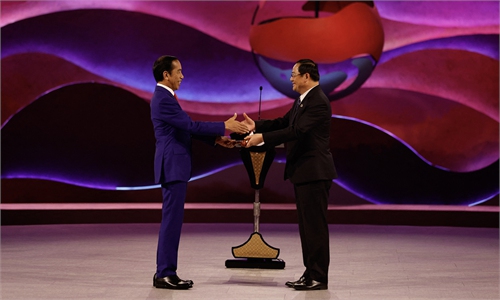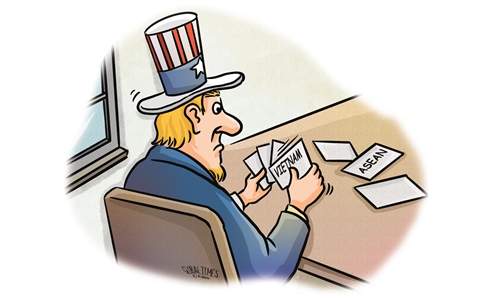
Illustration: Chen Xia/Global Times
It's a little bit ironic that just several days before the opening of China-ASEAN expo, which is scheduled for September 16-19 in Nanning, South China's Guangxi Zhuang Autonomous Region, US Deputy Treasury Secretary Wally Adeyemo was quoted by media reports as saying that "a slowing Chinese economy" is going to hit its neighbors. The senior US government official, who is good at distorting facts, should go to Nanning to see with his own eyes what opportunities China's consumer market offers ASEAN economies.Several US officials and media outlets have launched a smear campaign against the Chinese economy in recent months. Blaming China is a customary tactic of some politicians in Washington to distract the public from domestic problems in the US and earn political capital. Ahead of the 2024 US presidential elections, the US-launched smear campaign has become increasingly hysterical. What is even more absurd is that it appears poker-faced and turns China - the world's second-largest economy - into a fantasy fiction.
Just one day after US President Joe Biden called China's economic situation a "crisis," Adeyemo said on Monday that "I am more concerned about what China's slowdown means for their neighbors and for Europe, than what it means for the US given how strong our economy is," according to Reuters. This view cannot be more mistaken.
Although China's economy is indeed facing challenges, it remains resilient. Chinese Foreign Ministry spokesperson Mao Ning on Tuesday defied Western smears that China's economy is facing difficulties and slowing down. She told the world that what has collapsed is the "China collapse" theory, not China's economy.
The IMF predicted that China's economy will grow by 5.2 percent this year, and contribute one-third of the global growth. The Chinese economy is an opportunity, not a risk, for not only Europe but also its neighbors.
The 20th China-ASEAN Expo (CAEXPO), an annual trade show which aims to facilitate economic cooperation between China and ASEAN, will be held from September 16 to September 19 in Nanning. The exhibition's scale has bounced back to pre-pandemic levels, with about 640 exhibitors from ASEAN participating. It reflects that ASEAN companies' emphasis on the Chinese market and China's pledge of further opening-up are gradually becoming in sync, which is an encouraging sign.
China's Vice Minister of Commerce Li Fei said in August that the two sides are facilitating the negotiation of the China-ASEAN Free Trade Agreement 3.0, which is expected to raise the opening-up level of bilateral trade and investment area, expand beneficial cooperation in new emerging sectors such as digital economy, green economy and supply chain connectivity. An interesting phenomenon is that at a time when some American officials urge that attention be paid to the possible spillover of "risks" from China, China-ASEAN mutually beneficial cooperation is proceeding in an orderly manner. Although the US has certain influence upon Asian countries, it cannot force them to "decouple" from China's economy.
In 2022, two-way trade between China and ASEAN reached over $970 billion, more than doubling from one decade ago. China now is ASEAN's largest trading partner, and ASEAN's position as China's largest trading partner has further consolidated. China and ASEAN see each other's development as important opportunities, and the two sides have kept markets open to each other. In the face of facts and truth, Adeyemo's words appear quite ludicrous.
As a matter of fact, the US economy is not performing as well as Adeyemo has claimed. For instance, JPMorgan Chase CEO Jamie Dimon warned against over-optimism in addressing the US economy. As reported by CNBC, Dimon said while the current situation of the US economy is good, it would be a "huge mistake" to believe that it will last for years.
At a time when the US economy itself is facing multiple difficulties, politicians in Washington should stop slandering China and get their own house in order, first things first.
The author is a reporter with the Global Times. bizopinion@globaltimes.com.cn



